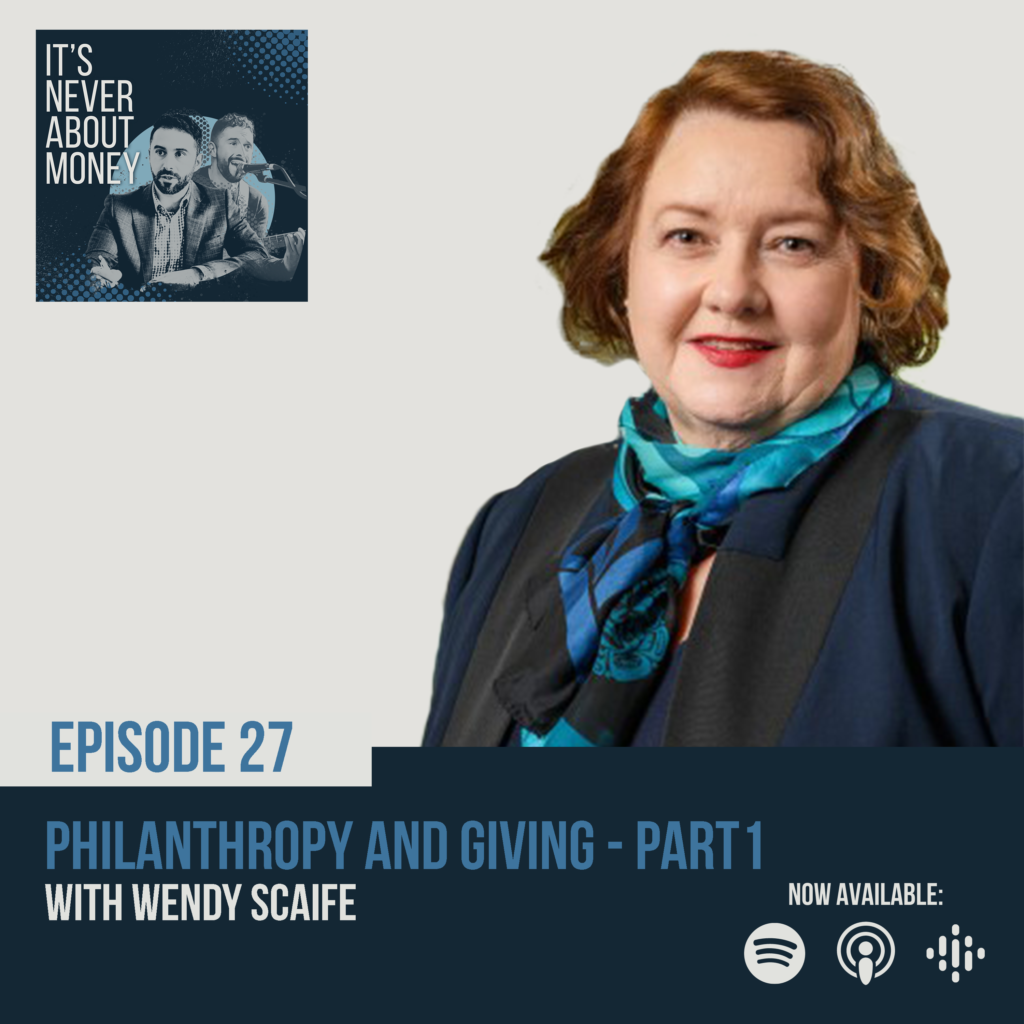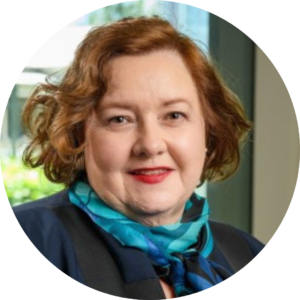For a lot of us, we are introduced to generosity and kindness at a young age.
We see our mothers or our fathers washing jerseys; or donating at church; or volunteering at the tuckshop; and we, in one way or another, absorb the culture of giving. We learn to be givers.
This week’s guest, Dr Wendy Scaife, is a giver.
Dr Scaife is an Associate Professor and Director at the Australian Centre for Philanthropy and Nonprofit Studies at Queensland University of Technology (QUT). She has been involved in the nonprofit and philanthropy sector for more than three decades. From teaching, to researching, to volunteering, to becoming CEO of the Leukemia Foundation – she has done it all. But it all stems from her family.
When asked what sparked her passion for philanthropy, Wendy responded, “For me, my parents were involved in their communities, so we were there slicing the tomatoes or whatever it might be… so we were encouraged to do that.”
She explains that seeing your parents being involved with the community and helping the less fortunate socialises and perpetuates the culture of giving.
Dr Scaife has researched the many ways in which people give, especially in a planned versus spontaneous way. Planned giving, or structured giving, has a particular benefit for families and family business by being a mechanism to pass down family values and culture.
Structured giving allows families, “to express their values in a substantive way that really show who they are and what they stand for, but more than that, what their family stands for,” explains Dr Scaife.
Structuring your giving with regular, small donations over time – as opposed to a one off check at tax time – also means you not only give more in total, but you become more invested in the charity.
“Charities aren’t owned by the staff or the volunteers. They’re owned by all the people who support that charity,” says Dr Scaife.
So how do you start? How do you know which charity to align your business with?
The best advice that Dr Scaife could give was to go and seek advice. There are consultancies that can help you. Consultancies that act as a matching agent between your business and charities. Find a charity that has a similar ethos and values system as you and your business.
Start small. Have a chat with the charity. Go on a tour, or attend an open day. Get a sense of what the organisation is about so you can truly believe and support them. It is the belief that giving can make a difference and the desire to give back to the community that will continue the culture of giving.
Listen to our full conversation with Dr Wendy Scaife on Episode 27 and Episode 28 of It’s Never About Money.
FIND OUT MORE:
> Australian Centre for Philanthropy and Nonprofit Studies Website.
> ACPNS LinkedIn: https://www.linkedin.com/company/acpns-qut
> ACPNS Twitter: https://twitter.com/acpns_qut







